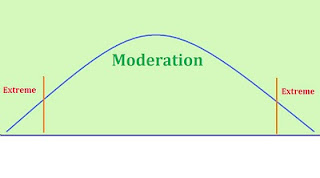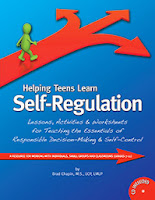With statistics from the
Center for Disease Control now indicating Autism Spectrum disorders being present in approximately 1 out of every 110 births, questions about treatment strategies continue to rise.
As we know, children with Spectrum disorders often struggle with:
- Social interaction
- Moderating sensory responses
- Appropriate Emotional responses
- Communication
Each of these areas directly relates to Self-regulation. For example, having an average, or moderate, response when someone says "Hello" works much better socially than saying nothing, or shouting. In social situations, being able to appropriately regulate ones response can have a significant impact on making and keeping friends.
or shouting. In social situations, being able to appropriately regulate ones response can have a significant impact on making and keeping friends.
When addressing Self-regulation issues, it can be helpful to simplify the behaviors down into two main categories:
- Over-responding: An extreme outward response to an event that most individuals would see as ordinary (e.g. - Screaming when a door opens)
- Under-responding: Little or no response to something that most individuals would have an external response to (e.g. - Eye contact, social greetings or pain)
When assisting children with special needs, we spend a great deal of time working on eliminating "extreme" responses to neutral stimuli (e.g. - sounds, clothing or transitions).
Many people draw upon Behavioral interventions (eliminating triggers, applying consequences, modeling, etc.) to reduce these extreme responses.
However, it's also important to address the Emotional and Cognitive aspects of Self-regulation to increase the chances of success. This can include:
- Teaching the child how to implement his/her own appropriate calming techniques
- Breaking interactions down as they happen to process responses together
- Utilizing stories, games, and videos to teach appropriate emotional expression
Our goal as parents is for our children to be able to regulate themselves effectively. This process happens over time and on a continuum. Be sure to remind yourself that any movement down the continuum toward Self-regulation is a step toward Success:)
*If you work with children who have an interest in computers or technology, it may be beneficial to use an intervention tool like the Challenge Software Program to help engage them in the process.
Brad Chapin, LCP, LMLP
email: brad.chapin@cpschallenge.com


